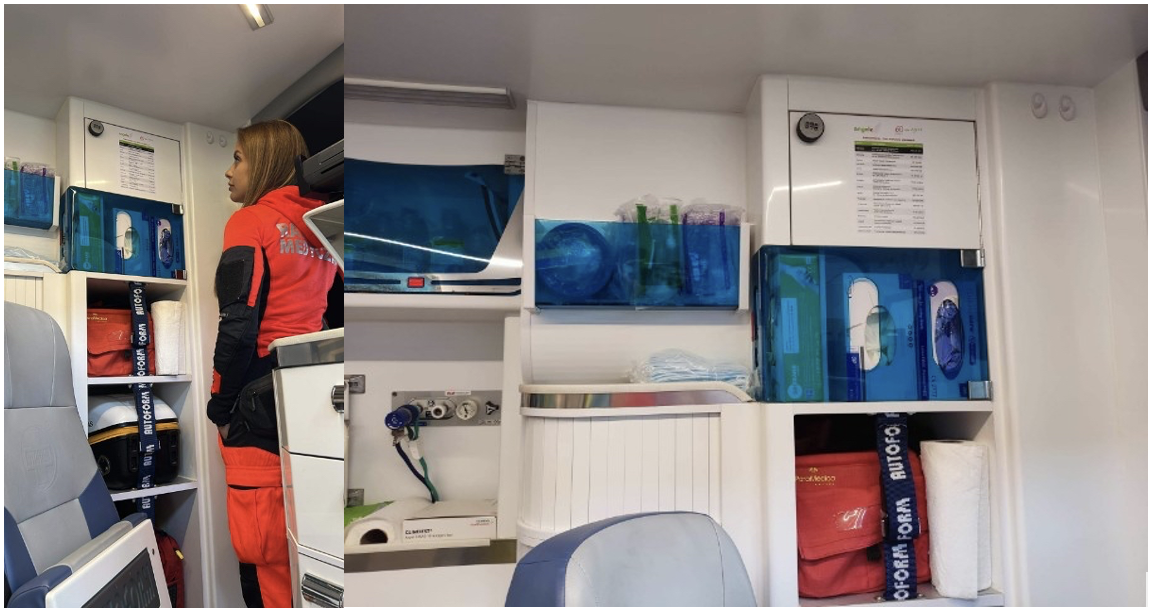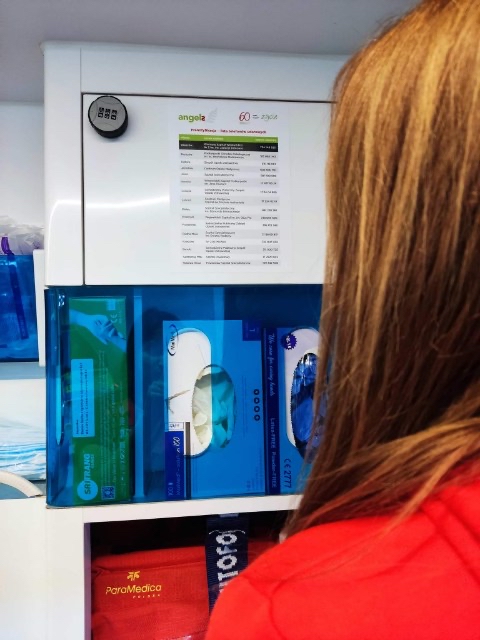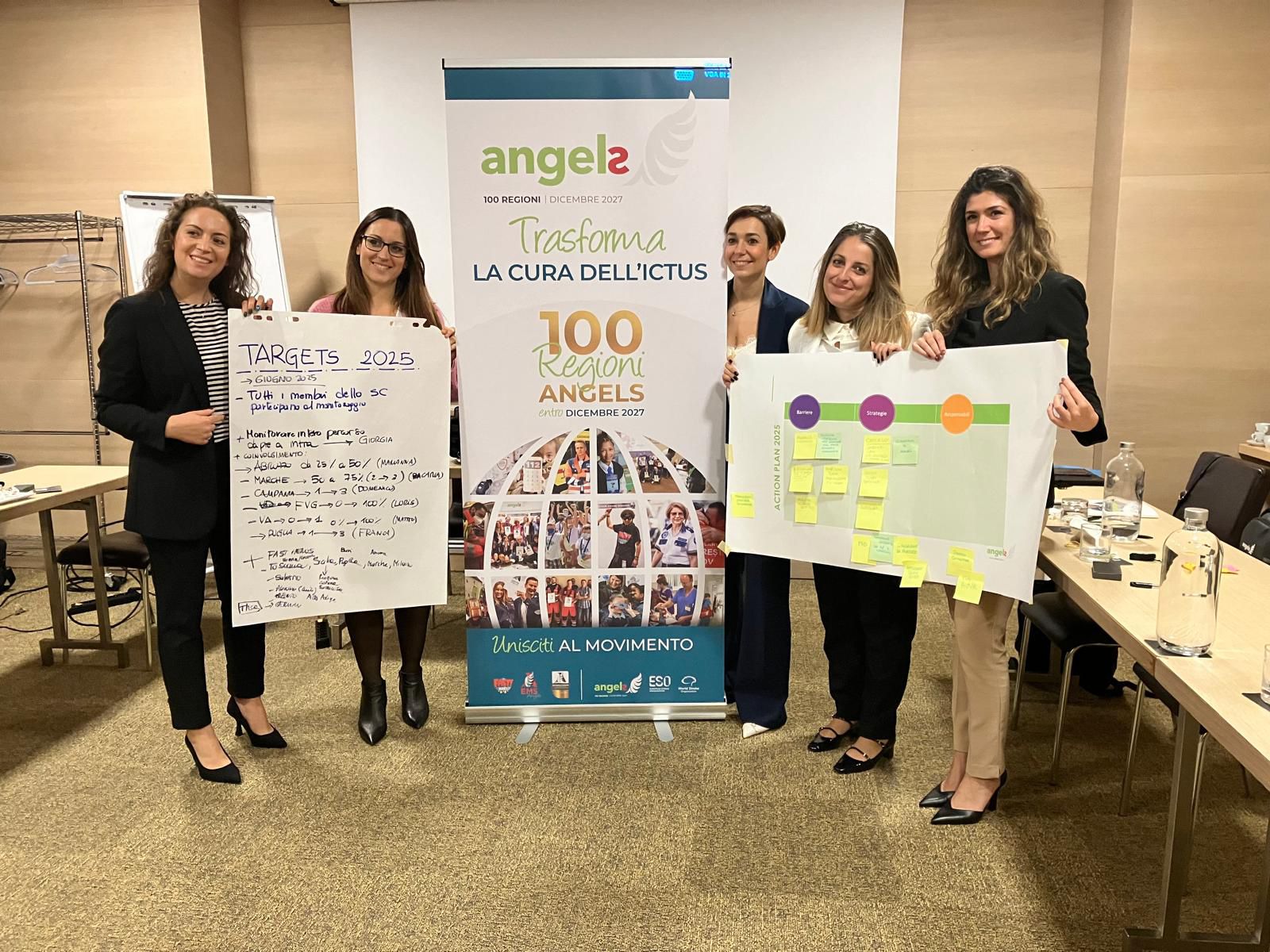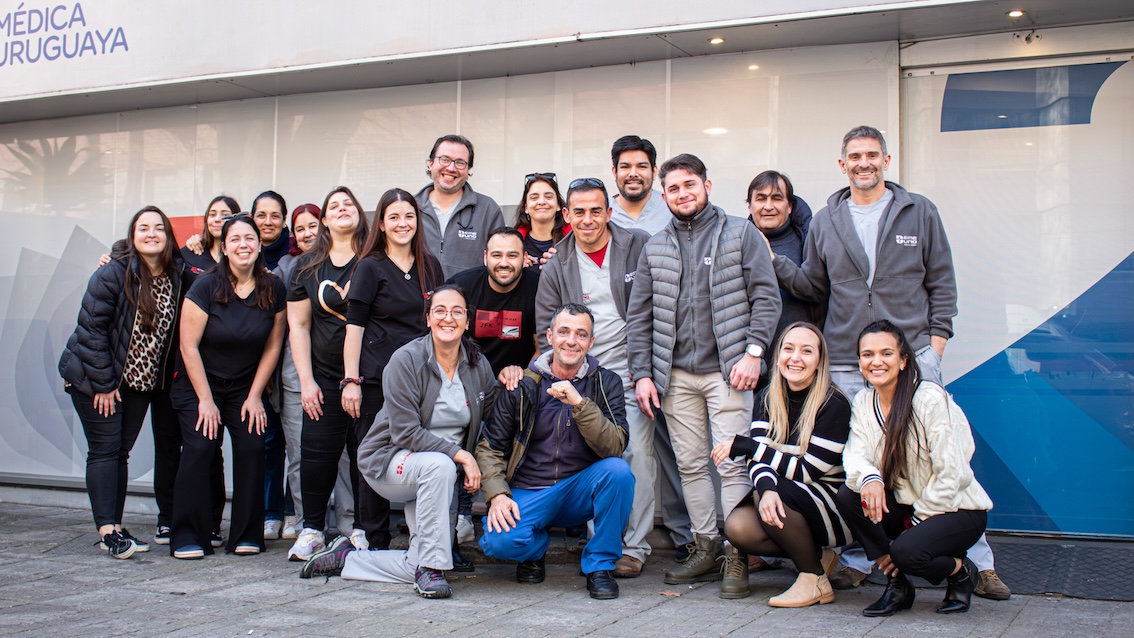
높이 약 21cm, 너비 약 15cm의 일반 스티커입니다. 왼쪽 상단 모서리에는 Angels 로고가 있습니다. “60분 = 생명”이라는 단어는 오른쪽 상단에 나타나며 아래에 16개의 전화번호 목록이 있습니다. 스티커에는 배킹을 벗겨낼 때 앰뷸런스 내부 패널과 같이 거의 모든 표면에 달라붙는 얇은 접착층이 있습니다.
사실, 뇌졸중 관리 책임이 이 지역의 신경과 컨설턴트인 Prof Halina Bartosik-Psujek에게 있는 폴란드 남동쪽 구석에 있는 산성인 Podkarpackie의 모든 앰뷸런스 안에는 이 스티커가 똑같습니다.
올해 3월 23일, Bartosik-Psujek 교수는 대유행 시작 이후 첫 번째 대면 지역 회의에 대해 16개 뇌졸중 병동 모두의 신경과장을 환영하게 되어 기쁩니다. 이들은 지역 뇌졸중 데이터에서 대두된 치료 지연이 EMS 서비스의 단점을 지적했다는 사실을 포함하여 많은 이야기를 해야 했습니다. EMS 서비스에서는 코로나 위기로 인해 교육이 중단되었고 직원 이직률이 증가했으며 사기가 떨어졌습니다. 지역 전역의 구급차 직원들은 증상이 명백하지 않은 한 뇌졸중을 진단할 능력이 부족했으며, 신경학적 평가 척도를 사용하지 않았고, 사전 알림가 일관되지 않았다.
지역 회의(의사 결정 워크숍, 시뮬레이션 교육 및 FeSS 프로토콜 구현 포함)에서 등장하는 여러 개입 중에서 EMS 교육이 우선시되었습니다. 지역 회의 후 4주도 지나지 않은 4월 말, 이 지역의 60명의 EMS 구성원들이 이틀간 집중 교육을 위해 번성하는 지방 수도인 Rzeszów에서 모일 것입니다.
행사에 앞서 Angels 컨설턴트인 Katarzyna Putyło는 전화 통화로 특정 숫자를 부르는 데 많은 시간을 보냈습니다. EMS 서비스로부터 받은 피드백에 따르면, 일부 지역의 뇌졸중 병동에서 뇌졸중 전화 통화를 하는 것은 종종 응답하지 않는 것으로 나타났습니다. Katarzyna는 그 이유가 간단할 수 있다는 생각이 들었고, 그녀의 전화가 무응답된 끔찍한 횟수가 많을 때 그녀는 자신의 웅크림을 두 배로 줄였습니다. 그 숫자 자체가 잘못될 수 있을까요?

간단한 설명
간단한 설명이 일반적으로 복잡한 설명보다 낫다는 생각은 700년 전에 태어난 영어 수학자이자 철학자인 오캄의 William이 기고한 문제 해결 원칙입니다. 원칙이 알려지듯이, “오캄의 주인공”은 너무 상세한 설명이 종종 진실로부터 멀어지기 때문에 이론을 작성할 때 단순성에 의존해야 한다고 주장합니다.
Katarzyna는 Podkarpackie 주의 병원에 한 번 전화해 “누군가가 항상 찾아오는 뇌졸중 번호는 무엇입니까?”라고 물었습니다. 답변은 다양했습니다. 일부 병원에서는 자금이 소진된 후 모바일 뇌졸중 전화가 작동하지 않게 되었습니다. 뇌졸중 경로가 매우 체계화된 한 최고의 병원에서 신경과는 새로운 건물로 이전하여 그 수가 변경되었습니다.
Podkarpackie의 모든 뇌졸중 전화 번호를 확인 또는 업데이트한 후, Katarzyna는 Ockham의 레이저를 또 한 번 뇌졸중었습니다. "더 적은 비용으로 더 많은 일을 할 수 있는 것은 쉬운 일입니다."라고 위대한 논리자는 믿었습니다. 따라서 Katarzyna는 교육 의제에 전화번호를 기재하거나 업데이트된 정보를 배포하기 위한 새로운 프로세스를 고안하는 대신, 포드카르파키 지방의 모든 앰뷸런스에 충분한 스티커를 주문했으며, 몇 가지를 남겨두었습니다.

도구 및 트리거
뇌졸중 증상 및 환자 약물에서 신경학적 척도에 이르기까지, Rzeszów의 Provincial Clinical Hospital No. 2에 있는 Dr Rafal Kaczorowski가 제공하는 교육은 사전 알림가 있거나 없는 환자 경로에 대한 비디오 데모를 포함하여 입원 전 단계의 모든 측면을 다루었습니다. 이는 일반적으로 ER에서 자신의 경로가 끝나는 팀을 위한 눈 뜨기였습니다. 그들은 단일 전화 통화가 삶에 미칠 수 있는 차이에 놀랐습니다.
하지만 동영상에서 사전 알림가 필요한 경우 스티커가 훨씬 더 많은 효과를 보였습니다. 이는 도의 모든 앰뷸런스에 도구를 설치하고 생명을 구하는 행동을 촉발함으로써 구현에 대한 장벽을 지웠습니다. 그들은 손끝에서 바로 전화할 수 있는 번호를 가지고 있을 뿐만 아니라 사전 알림에 대한 메시지를 간과할 수 없었습니다.
교육이 끝난 후, Katarzyna는 부재 중인 동료를 위해 추가 스티커를 수집하거나 서비스를 개선할 수 있는 방법에 대한 자신의 제안을 공유하는 참가자 대기열의 대상을 찾게 되어 놀랐습니다.
모든 EMS 팀이 사전 알림 하고, 모든 뇌졸중 병동이 전화를 받기로 약속한 Katarzyna는 이제 Kaczorowski 박사와 Bartosik-Psujek 교수를 포함한 모든 관점에서 이 주요 우선순위 조치가 지원된다는 사실에 만족합니다. 이들은 확고한 평판이 침해를 억제하기에 충분할 것입니다.
여러 병원이 사전 알림로 인해 더 매끄러운 경로와 더 나은 치료 시간을 보고하므로 스티커 덕분에 벌어진 이익은 이미 포도나무에 부딪혔습니다. 그러나 스티커가 무엇을 달성할 수 있는지 실제로 측정하려면, 내년 EMS 상을 주시하고 포드카르파키 지방의 앰뷸런스 팀을 수상자들 중에서 찾아야 합니다.



